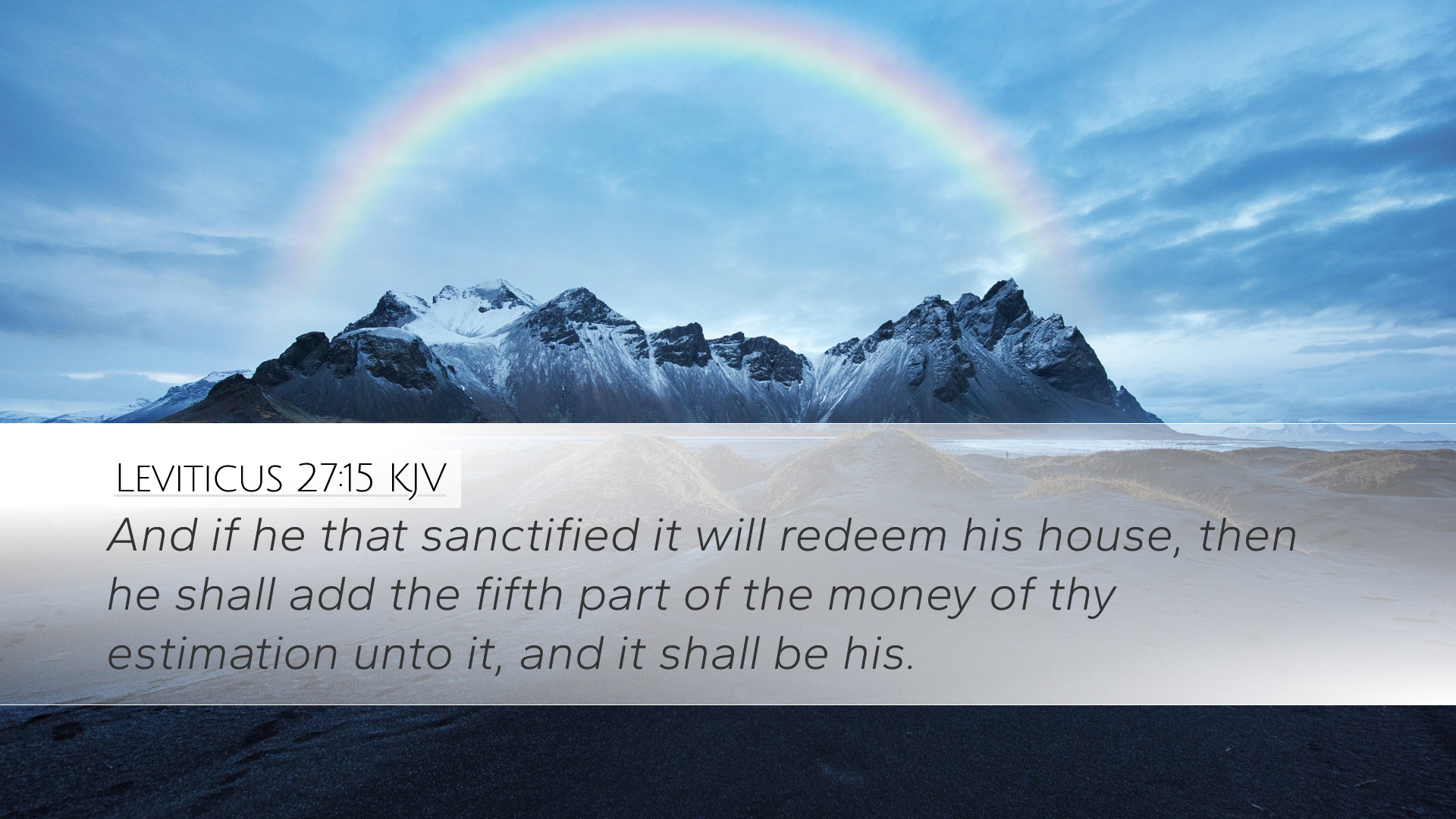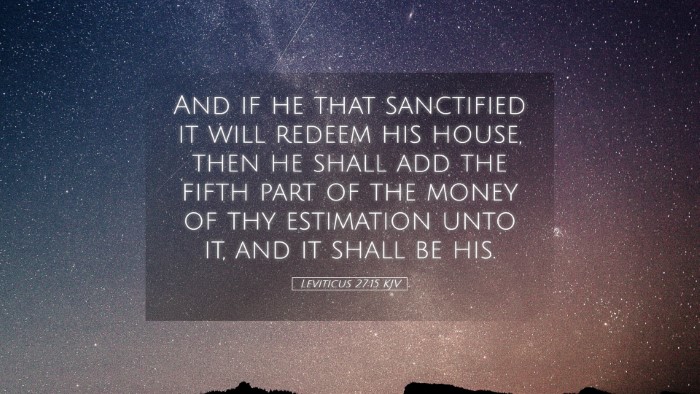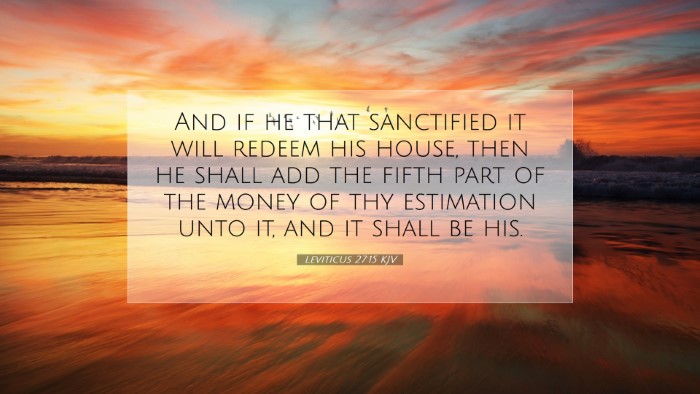Commentary on Leviticus 27:15
Verse: "And if he that sanctified it will redeem his house, he shall add the fifth part of the money of thy estimation unto it." (Leviticus 27:15)
This verse is part of the concluding chapter of Leviticus, which deals primarily with laws pertaining to vows and dedications made to God. The context of this specific verse revolves around the principles of redemption and value assessment in the sacrificial system established for the Israelites. Here we will explore insights collected from renowned public domain commentaries by Matthew Henry, Albert Barnes, and Adam Clarke.
1. The Principle of Dedication and Redemption
Matthew Henry's Commentary: Matthew Henry emphasizes the concept of dedication in this passage, highlighting that when someone consecrates their possessions to God, it reflects their willingness to relinquish control over that property or item. He notes that the ability to redeem such dedicated property serves as a gracious provision from God for His people, allowing them not to suffer loss but to maintain their livelihood.
Henry writes: “The sanctity of the thing dedicated must be acknowledged, yet the grace of redemption shows God’s mercy, providing pathways for His people to reclaim what is valuable.”
2. The Role of Estimation
Albert Barnes' Commentary: Albert Barnes provides further insights into the estimation aspect mentioned in this verse. He explains that the valuation of dedicated items is crucial as it provides a tangible way to assess what has been set aside for God. Barnes stresses that the priest must determine the "estimation" based on the overall worth of the property, ensuring fairness and equity in how property is treated under the Law.
Barnes highlights: “It is important that the estimation reflects the true value of the house as it represents the cost of relinquishment and the weight of a vow to God.”
3. Adding the Fifth Part
Adam Clarke's Commentary: Clarke delves deep into the significance of adding "the fifth part of the money of thy estimation unto it" as a part of the redemption process. He describes this stipulation as a demonstration of the seriousness with which God regards vows and sanctifications. The extra fifth emphasizes commitment and underscores the notion that while redemption is possible, it requires a sacrifice beyond merely reclaiming one's property.
Clarke points out: “The additional fifth part symbolizes a recognition of the divine claim upon not only the property but also the heart and intention of the vow-maker.”
4. Theological Implications
The theological implications of Leviticus 27:15 relate to the broader theme of redemption found throughout Scripture. The verse illustrates that ownership over one's possessions remains with God even when they are dedicated, prompting us to reflect on our stewardship of what we own. This verse's exploration of redemption can be seen as prefiguring the work of Christ, who redeems not only us but also our lives from sin and death.
5. Practical Application for Believers
- Understanding Commitment: Believers should recognize that dedication to God involves serious commitment, requiring a readiness to sacrifice our desires for His will.
- Stewardship: The application of this verse reminds Christians that all possessions belong to God, and they should manage their resources with the understanding that God’s claim on them is paramount.
- Redemptive Grace: The ability to redeem, as shown in this passage, illustrates God's merciful nature. It encourages believers to not only seek forgiveness and restoration but also to offer it to others.
Conclusion
Leviticus 27:15 provides a foundational understanding of the dynamics between dedication, valuation, and redemption within the context of the Israelite community and their covenant with God. Through insights gathered from Matthew Henry, Albert Barnes, and Adam Clarke, it becomes clear that this verse is not merely an ancient legal stipulation but a living principle that teaches modern believers about commitment, stewardship, and the immeasurable grace of redemption that flows through Christ.


